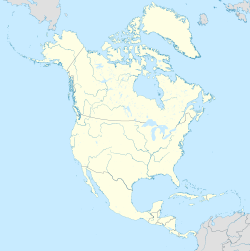Geography
Bartlett is located 24 miles (39 km) south of Temple and 50 miles (80 km) northeast of downtown Austin. The city straddles the line between Bell and Williamson counties; the center of the city is mostly in Bell County, but the slight majority of the city's area is in Williamson County.
According to the United States Census Bureau, the city has a total area of 1.2 square miles (3.2 km2), of which 0.004 square miles (0.01 km2), or 0.24%, is water. [8]
Demographics
Historical population| Census | Pop. | Note | %± |
|---|
| 1890 | 206 | | — |
|---|
| 1900 | 957 | | 364.6% |
|---|
| 1910 | 1,815 | | 89.7% |
|---|
| 1920 | 1,731 | | −4.6% |
|---|
| 1930 | 1,873 | | 8.2% |
|---|
| 1940 | 1,668 | | −10.9% |
|---|
| 1950 | 1,727 | | 3.5% |
|---|
| 1960 | 1,540 | | −10.8% |
|---|
| 1970 | 1,622 | | 5.3% |
|---|
| 1980 | 1,567 | | −3.4% |
|---|
| 1990 | 1,439 | | −8.2% |
|---|
| 2000 | 1,675 | | 16.4% |
|---|
| 2010 | 1,623 | | −3.1% |
|---|
| 2020 | 1,633 | | 0.6% |
|---|
|
As of the 2020 United States census, there were 1,633 people, 460 households, and 303 families residing in the city.
At the 2000 census, [3] there were 1,675 people, 571 households and 404 families residing in the city. The population density was 1,373.3 inhabitants per square mile (530.2/km2). There were 638 housing units at an average density of 523.1 per square mile (202.0/km2). The racial makeup of the city was 61.61% White, 17.97% African American, 0.66% Native American, 0.06% Asian, 16.84% from other races, and 2.87% from two or more races. Hispanic or Latino of any race were 33.07% of the population.
There were 571 households, of which 35.0% had children under the age of 18 living with them, 52.0% were married couples living together, 14.5% had a female householder with no husband present, and 29.1% were non-families. 27.3% of all households were made up of individuals, and 16.5% had someone living alone who was 65 years of age or older. The average household size was 2.78 and the average family size was 3.40.
Age distribution was 29.3% under the age of 18, 8.8% from 18 to 24, 23.0% from 25 to 44, 19.9% from 45 to 64, and 18.9% who were 65 years of age or older. The median age was 36 years. For every 100 females, there were 91.2 males. For every 100 females age 18 and over, there were 83.9 males.
The median household income was $26,094, and the median family income was $35,595. Males had a median income of $22,273 versus $21,016 for females. The per capita income for the city was $12,649. About 21.1% of families and 25.6% of the population were below the poverty line, including 29.5% of those under age 18 and 30.3% of those age 65 or over.
This page is based on this
Wikipedia article Text is available under the
CC BY-SA 4.0 license; additional terms may apply.
Images, videos and audio are available under their respective licenses.










